Sight word recognition Normal Building Vocabulary Worksheets for Ages 5-6
5 filtered results
-
From - To
Boost your child's reading skills with our Sight Word Recognition Normal Building Vocabulary Worksheets designed specifically for ages 5-6. These engaging worksheets help young learners develop essential skills by exposing them to common sight words, enhancing both recognition and understanding. Our activities are crafted to make learning fun and interactive, ensuring that children can practice in a supportive and stimulating environment. With colorful illustrations and diverse exercises, your child will build a strong vocabulary foundation while gaining confidence in their reading abilities. Perfect for homeschooling or supplementary practice, these worksheets pave the way for academic success and a lifelong love for reading!
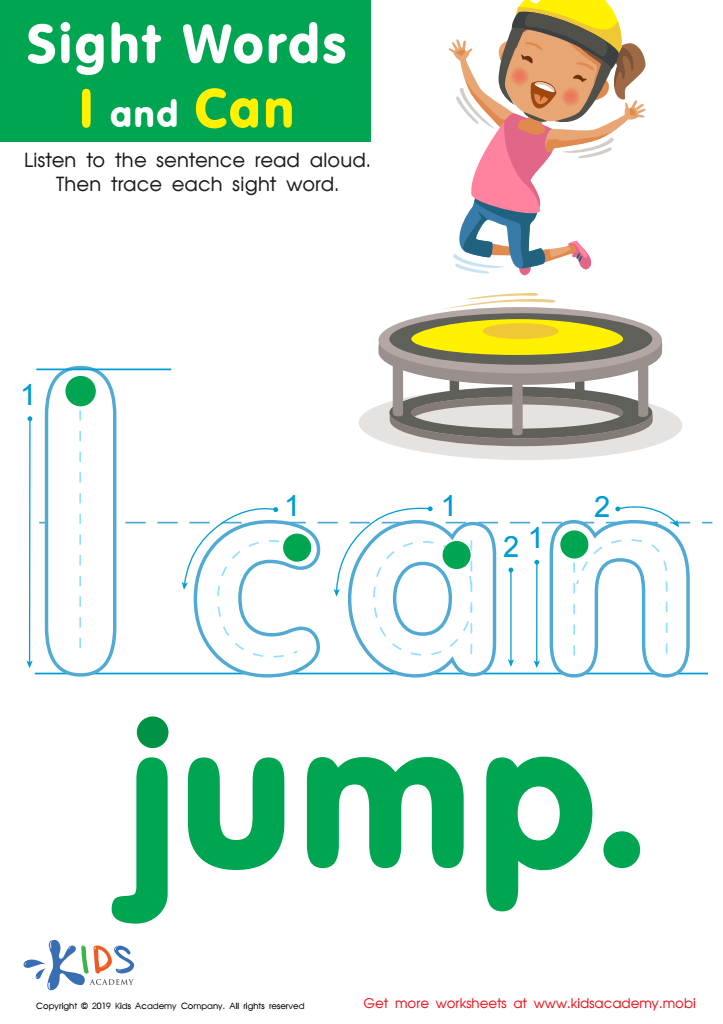

Sight Words I Can Worksheet
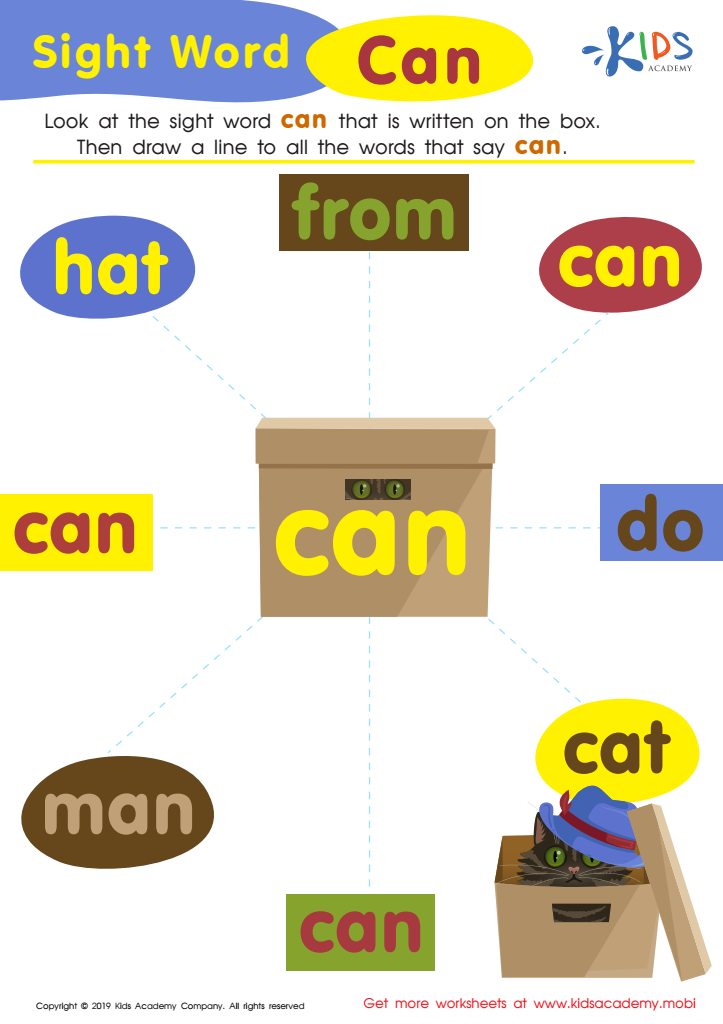

Sight Word Can Worksheet
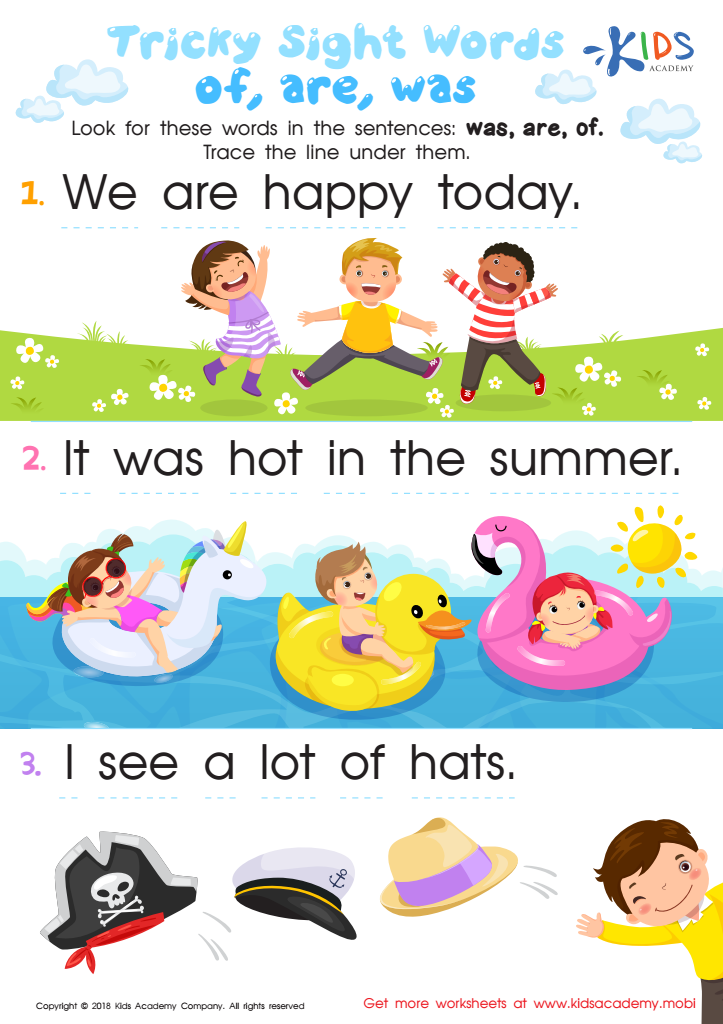

Tricky Sight Words Worksheet
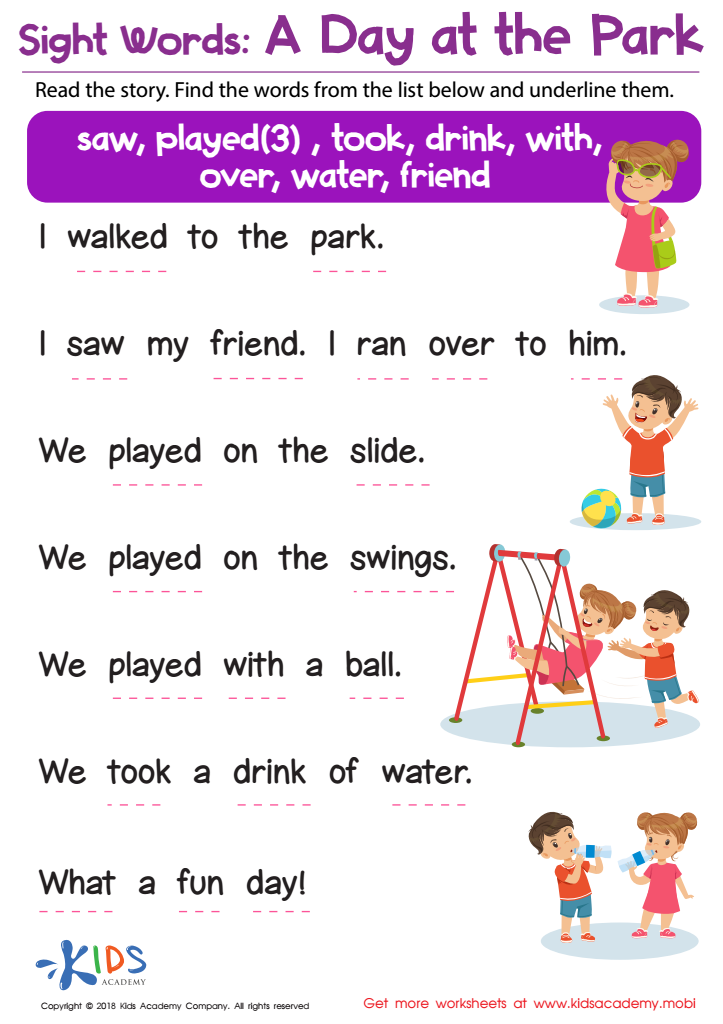

Sight Words: A Day at the Park Worksheet
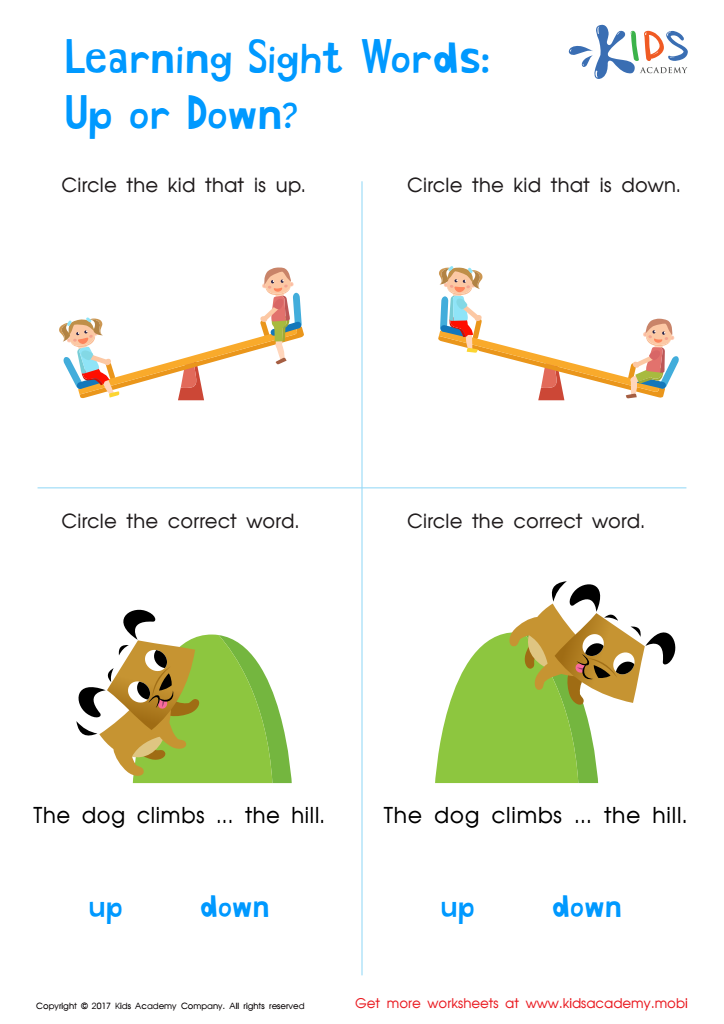

Up or Down Printable Sight Words Worksheet
Sight word recognition and vocabulary building are crucial for children aged 5-6 as they lay the foundation for literacy development. At this age, children begin to develop reading fluency, which relies heavily on recognizing high-frequency sight words. These words often do not follow phonetic patterns and can’t always be easily sounded out. When children can recognize these words instantly, their reading becomes smoother and more confident, fostering a love for reading.
Moreover, vocabulary growth is essential in enhancing comprehension skills. Engaging with diverse vocabulary helps children express their thoughts, understand stories better, and participate in conversations, which in turn builds their communication skills. By focusing on sight word recognition and vocabulary at this early stage, parents and teachers set children up for future academic success.
Additionally, these skills contribute to a child's overall cognitive development and critical thinking ability. Strong early literacy skills correlate with higher achievement in school and better opportunities in life. Therefore, investing time in sight word practice and vocabulary enrichment is paramount for parents and teachers, ensuring children thrive as confident readers and effective communicators as they progress through their educational journey.
 Assign to My Students
Assign to My Students












.jpg)














